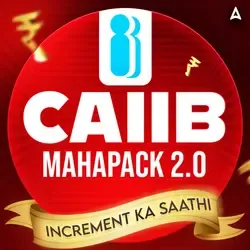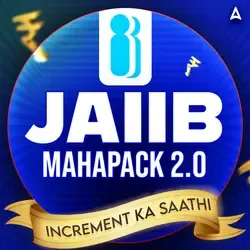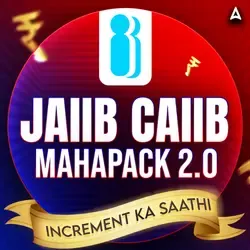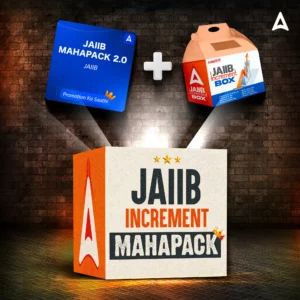JAIIB/DBF/LRB-2020- Junior Associate of the Indian Institute of Bankers popularly known as JAIIB is an exam conducted by IIBF. IIBF has started the online application for JAIIB 2020. If you are preparing for this exam then we are providing you with an article explaining one of the most important topic from Paper-3 ‘Legal & Regulatory Aspects of Banking’ that is RBI Act-1934, Bank Promotional Exam.
Define RBI Act 1934
This Act may be called the Reserve Bank of India Act, 1934. It extends to the whole of India
Some important Sections of RBI Act, 1934
- Sec 2(e)- Scheduled Bank- A schedule bank means a bank whose name is included in the 2nd schedule of RBI Act 1934.
- Banks which are not included in the 2nd schedule of RBI are called Non schedule Bank.
- Sec 4– Capital of the Bank-The capital of the Bank shall be five crores of rupees.
- Sec 5- Increase and reduction of share capital
- Sec. 8– Composition of the Central Board, and term of office of Directors-The Central Board shall consist of the following Directors, namely:-
(a)a Governor and [not more than 4] Deputy Governors to be appointed by the Central Government
(b)4 Directors to be nominated by the Central Government, one from each of the 4 Local Boards
(c)10 Directors to be nominated by the Central Government
(d)2 Government officials to be nominated by the Central Government
- Sec.13– Meetings of the Central Board- Meetings of the Central Board shall be convened by the Governor at least 6 times in each year and at least 1 in each quarter.
- Sec. 17- Types of Business- Defines various types of business which RBI may transact which include acceptance of deposit without interest from Central/State Govt, any other person or institution, sale/purchase of foreign exchange, securities, rediscounting of bills/PN, grant loans etc.
- Sec. 20– Obligation of the bank to transact Government business-Bank shall undertake to accept monies for account of the Central Government and to make payments up to the amount standing to the credit of [its account]. To carry out [its exchange]. Remittance. Other banking operations, including the management of the public debt
- Sec. 21– RBI to have the right to transact Government business in India- RBI has the right to transact Govt. business in India i.e. remittance, exchange, keeping deposit free of interest etc.
- Sec. 22– Right to issue bank notes- RBI shall have the sole right to issue bank notes in India.
- Sec. 23– Issue Department- Bank notes will be issued by issue deptt. against security consisting of gold coins, bullion, foreign securities & other approved securities.
- Sec. 24– Denominations of notes- RBI issues all currency notes of denomination 2, 5, 10, 20, 50, 100,200, 500, 1000, 2000, 5000, 10000. It has power to discontinue or non issue of currency note of any denomination. The notes of 2 & 5 are already been discontinued.
-
Sec. 25– Form of bank notes- The design, form and material of bank notes shall be such as may be approved by the [Central Government] after consideration of the recommendations made by Central Board.
- Sec. 26- Legal tender character of notes- Every bank note shall be legal tender at any place in [India] in payment or on account for the amount expressed therein and shall be guaranteed by the [Central Government].
- Sec 26A- Certain bank notes to cease to be legal tender-No bank note of the denominational value of Rs. 500, Rs.1000 or Rs. 10,000 issued before the 13th day of January, 1946, shall be legal tender in payment or on account for the amount expressed therein.
- Sec.27– Re-issue of notes- RBI shall not re-issue bank notes which are torn, defaced or excessively soiled.
- Sec. 28– Recovery of notes lost, stolen, mutilated or imperfect-No person shall of right be entitled to recover from the [Central Government] or the RBI, the value of any lost, stolen, mutilated or imperfect currency note of the Government of India or bank note.
- Sec 29. Bank exempt from stamp duty on bank notes- The Bank shall not be liable to the payment of any stamp duty under the Indian Stamp Act, 1899, in respect of bank notes issued by it.
- Sec.31– Issue of demand bills and notes- No person in [India] other than the Bank or, as expressly authorized by this Act, the [Central Government] shall draw, accept, make or issue any bill of exchange, promissory note or engagement for the payment of money payable to bearer on demand, or borrow, owe or take up any sum or sums of money on the bills, hundis or notes payable to bearer on demand of any such person.
- Sec.33– Assets of the Issue Department- Aggregate value of the gold coin, gold bullion and foreign securities held as assets- Rs. 200 crores. Aggregate value of the gold coin and gold bullion– Rs. 115 crores.
- Sec. 38– Obligations of Government and the RBI in respect of rupee coin- The [Central Government] shall undertake not to put into circulation any rupees, except through the RBI ; and the RBI shall undertake not to dispose of rupee coin otherwise than for the purposes of circulation
- Sec.42- CRR of scheduled banks to be kept with the RBI- Every bank is required to maintain with RBI an average daily balance equal to a percentage of the NDTL as stipulated by RBI from time to time. This is known as CRR. There is no minimum or maximum limit for CRR. Further RBI does not pay interest on balance held for CRR purpose. Currently CRR is 4%.
- Sec.-45 A-F. Collecting & Furnishing of Credit Information- Secured Loan- 10 lakh and above. Unsecured Loan- 5lakh and above(as on last Friday of April). RBI is empowered to collect information related to borrower & suit filed accounts. Doubtful, lost & suit filled a/c of o/s balance of Rs.100 lac & above (Half yearly, March & September).
-
Sec 45-H-T Provisions relating to NBFC- No NBFC shall commence business or carry on business without obtaining a certificate of registration & having net owned fund of Rs.2 cr.
- Sec. 45ZA– Inflation target- Central Government shall, in consultation with the Bank, determine the inflation target in terms of the Consumer Price Index, once in every five years.
- Sec. 45ZB– Constitution of Monetary Policy Committee- MPC is a 6-member committee constituted by the Central Government. Each member of the MPC has one vote, and in the event of an equality of votes, the Governor has a second or casting vote. On the 14th day, the minutes of the proceedings of the MPC are to be published with all details. Once in every 6 months, RBI will publish Monetary Policy Report to explain the sources of inflation; and the forecast of inflation for 6-18 months ahead.
- Sec. 45ZD– Terms and conditions of appointment of Members of Monetary Policy Committee- Members of the Monetary Policy Committee appointed e for a period of 4 years and shall not be eligible for re-appointment. A Member may resign from the Monetary Policy Committee, at any time before the expiry of his tenure. By giving to the Central Government, a written notice of not less than six weeks.
- Sec. 45ZI– Meetings of Monetary Policy Committee- RBI shall organise at least 4 meetings of the Monetary Policy Committee in a year. Meeting schedule of the Monetary Policy Committee for a year shall be published by the Bank at least one week before the first meeting in that year. The quorum for a meeting of the Monetary Policy Committee shall be four.
- Sec. 45ZL– Publication of proceedings of meeting of Monetary Policy Committee-RBI shall publish, on the 14th day after every meeting of the MPC
- Resolution adopted at the meeting of the MPC
- Vote of each member of the MPC
- Statement of each member of the MPC
- Sec. 45ZM– Monetary Policy Report- RBI shall, once in every six months, publish a document to be called the Monetary Policy Report.
- Sec. 46- Contribution by Central Government to the Reserve Fund-
Central Government shall transfer to the Bank rupee securities of the value of 5 crores of rupees to be allocated by the Bank to the Reserve Fund.
- Sec. 46C– National Industrial Credit (Long Term Operations) Fund-
RBI shall establish and maintain a Fund to be known as the National Industrial Credit (Long Term Operations) Fund. An initial sum of 10 crores of rupees by the RBI.
- Sec. 49. Publication of bank rate- RBI shall make public from time to time the standard rate at which it is prepared to buy or re-discount bills of exchange or other commercial paper eligible for purchase.
Join Live Batches to Prepare for JAIIB Exams:

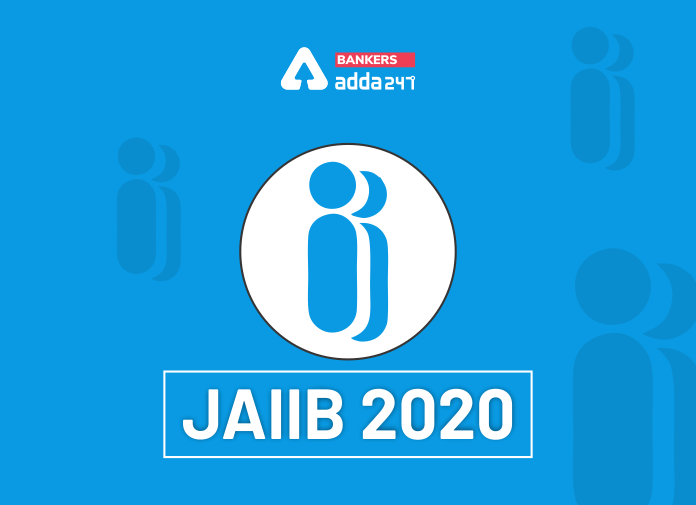

 GA Capsule for SBI Clerk Mains 2025, Dow...
GA Capsule for SBI Clerk Mains 2025, Dow...
 The Hindu Review October 2022: Download ...
The Hindu Review October 2022: Download ...
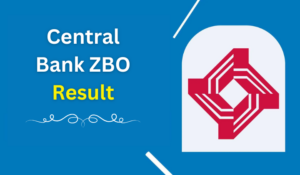 Central Bank ZBO Result 2025 Out, Downlo...
Central Bank ZBO Result 2025 Out, Downlo...

